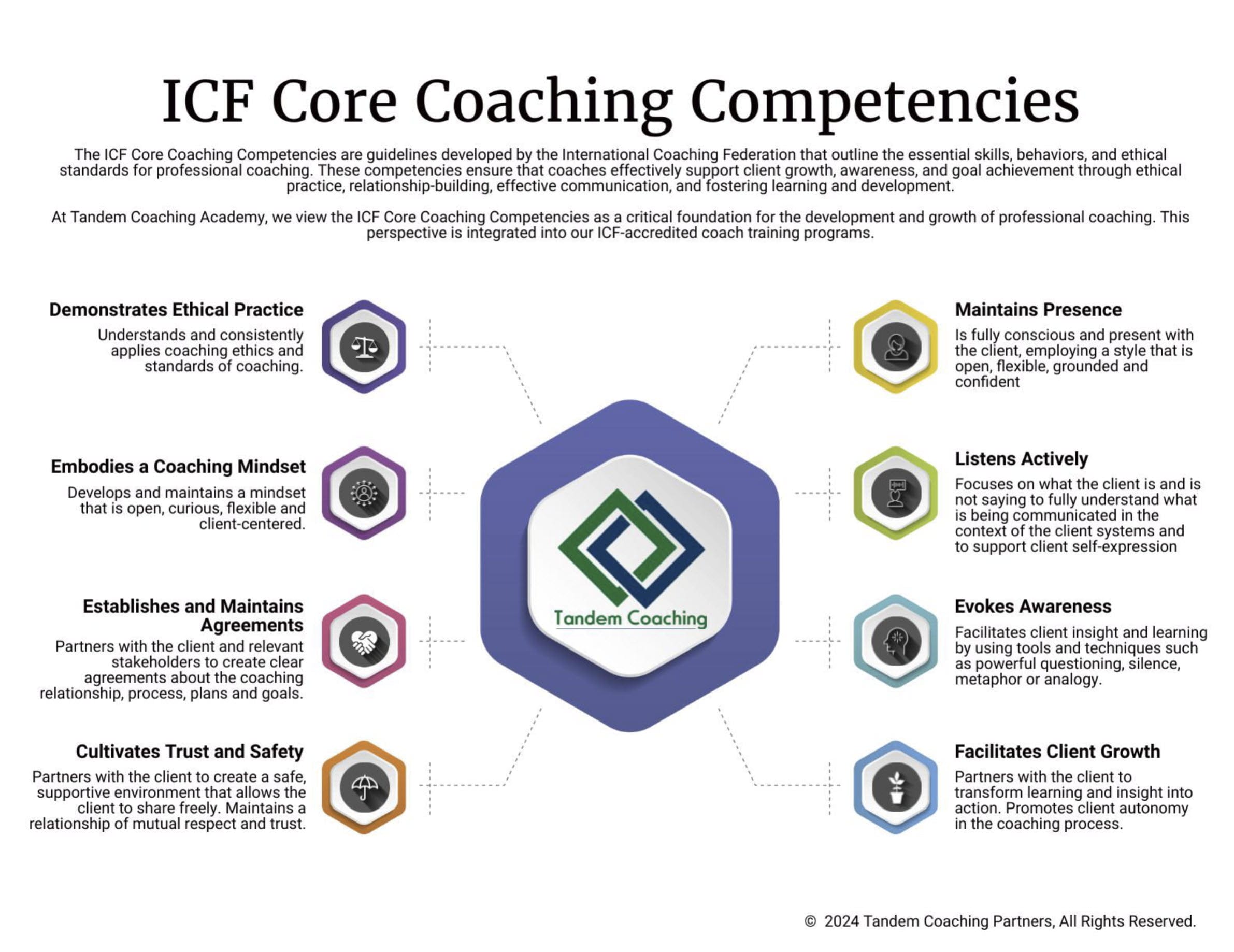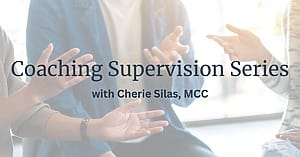The ICF Team Coaching Certification Exam is a crucial step for coaches seeking to demonstrate their ability to work effectively with teams. Unlike individual coaching, team coaching requires a systemic approach, balancing multiple perspectives, navigating complex team dynamics, and upholding ICF ethical standards.
If you’re preparing for the ICF Team Coaching Exam, this guide will give you a realistic preview of exam-style questions, along with detailed insights into the exam structure, common mistakes to avoid, and strategies to help you pass with confidence.
Take Free Team Sample Exam Now
"*" indicates required fields
What to Expect on the ICF Team Coaching Exam
The ICF Team Coaching Exam evaluates your ability to apply ICF Team Coaching Competencies in real-world scenarios, rather than just recalling theoretical knowledge. The exam is designed to assess how well you can think like a coach, make ethical decisions, and respond effectively in a team coaching context.
Exam Structure & Format
📌 Total Questions: The exam consists of a mix of knowledge-based and scenario-based questions.
📌 Types of Questions:
•Knowledge-Based Questions: These test your understanding of ICF competencies, ethics, and best practices in team coaching.
•Scenario-Based Questions: These present real-life team coaching dilemmas where you must determine the best and worst responses based on ICF principles.
📌 Time Limit: You will have 2.5 hours to complete the exam, requiring you to think critically under time constraints.
📌 Scoring Method: Each question is carefully weighted, with best answers receiving full credit and worst answers receiving zero or negative scoring.
📌 Retake Policy: If you don’t pass the first attempt, ICF allows a retake after a set period, but it’s crucial to prepare thoroughly before taking the exam.
📌 Exam Conditions: This is an online proctored exam, meaning you must take it in a secure, controlled environment.

[Sample Question #1] Ethical Considerations in Team Conflict
What is a key ethical consideration when a team coach works with a team that has internal conflicts?
A) The coach should maintain neutrality and avoid taking sides, ensuring all team members feel heard.
B) The coach should directly resolve the conflict by suggesting solutions to the team.
C) The coach should encourage the team leader to manage the conflict independently, as team coaching does not involve conflict resolution.
Correct Answer: ✅ A
Explanation:
•A is correct because an ICF Team Coach adheres to ethical guidelines by maintaining neutrality, supporting team self-awareness, and facilitating a psychologically safe space. Coaches help teams navigate challenges but do not impose their own opinions.
•B is incorrect because a coach’s role is not to dictate solutions. Doing so takes away the team’s ownership of their development and contradicts coaching principles.
•C is incorrect because while the leader has a role in team dynamics, a coach supports the entire team in addressing challenges collaboratively.
Why This Matters in the ICF Exam
Ethical practice in team coaching ensures that the coach remains an unbiased facilitator, not an authority figure. A neutral stance fosters trust and encourages the team to take responsibility for resolving its own conflicts. A coach who takes sides or imposes solutions undermines the team’s autonomy and growth.

Common Mistakes to Avoid While Preparing for the Exam
❌ Over-Focusing on Theory Without Application – The exam is scenario-based, meaning memorizing competencies isn’t enough—you must apply them in real-world team coaching situations.
❌ Ignoring Ethical Considerations – Many exam questions test ethical decision-making. If you’re not familiar with how to navigate ethical dilemmas, you could lose crucial points.
❌ Not Practicing Under Timed Conditions – The exam requires quick thinking. If you haven’t practiced answering questions under a time limit, you may struggle to finish on time.
❌ Relying Solely on Individual Coaching Knowledge – Team coaching is not the same as individual coaching. Be sure to study team-specific coaching principles and dynamics.
[Sample Scenario #2] Addressing Ethical Dilemmas in Multi-Stakeholder Environments
You are coaching a cross-functional team within a large organization. The team includes members from various departments, each with different priorities and reporting structures. Midway through the engagement, the team leader privately tells you that leadership expects certain outcomes from the coaching process, including improving efficiency and increasing alignment with the company’s strategic goals.
The team, however, has been focused on fostering psychological safety and addressing internal communication challenges, which they feel are their biggest barriers to success. There is now a clear misalignment between leadership’s expectations and the team’s needs.
You must navigate this ethical dilemma while ensuring the integrity of the coaching process.
What is the BEST action?
What is the WORST action?
Answer Choices:
A. Align the coaching process with leadership’s priorities, ensuring the team works toward efficiency and strategic alignment, as leadership is ultimately the sponsor of the engagement.
B. Continue coaching the team based on their identified needs without addressing leadership’s concerns, as coaching should always prioritize the client’s agenda.
C. Facilitate a conversation between the team and leadership to clarify goals and ensure transparency about the coaching process.
D. Inform leadership that the team’s focus is different from their expectations, assuring them that coaching will indirectly contribute to their goals without engaging the team in the discussion.
Best Answer & Explanation
✅ Correct Answer: C
Why This is the BEST Action:
•Facilitating a transparent conversation between leadership and the team ensures alignment and shared understanding, rather than allowing conflicting priorities to persist.
• Team coaching is a systemic intervention, meaning that all relevant stakeholders should be engaged in discussions about expectations and goals.
•This approach aligns with ICF ethical standards, which require maintaining clear agreements and ensuring all parties are working toward a shared vision.
Key Takeaways:
•Team coaching agreements should be revisited when misalignment occurs between stakeholders.
•The coach’s role is to create space for open dialogue, not to decide which agenda takes precedence.
•Transparency fosters trust and allows the team and leadership to align expectations without coercion.
Worst Answer & Explanation
❌ Correct Answer: A
Why This is the WORST Action:
•Prioritizing leadership’s agenda compromises coaching integrity by overriding the team’s self-identified needs.
• Coaching is not about enforcing external directives but facilitating team growth in alignment with their context.
•Ignoring the team’s priorities can erode trust and reduce engagement, leading to superficial compliance rather than meaningful transformation.
What This Answer Gets Wrong:
•Violates ICF Ethics – Coaching agreements should reflect mutual understanding, not one-sided mandates.
•Reduces Team Buy-In – If the team feels their needs are ignored, engagement in the coaching process may decline.
•Misuses Coaching Power – Coaches should not enforce organizational goals without ensuring team agreement.
Other Answer Choices Breakdown
| Answer Option | Why It’s Not the Best Answer | Why It’s Not the Worst Either |
|---|---|---|
| B. Continue coaching based on the team’s needs without engaging leadership. | Respects team autonomy but ignores key stakeholders and could create friction later. | Upholds coaching ethics, but failing to engage leadership risks future misalignment. |
| D. Reassure leadership that the team’s focus will help indirectly, without engaging them in dialogue. | While it avoids direct confrontation, this approach lacks transparency and doesn’t address the misalignment. | Attempts to maintain balance but avoids a critical conversation that must take place. |
Effective Strategies for Exam Prep
✅ Practice with Scenario-Based Questions – The best way to prepare is by working through realistic case studies and test questions, just like the ones above.
✅ Understand the WHY Behind Each Answer – Don’t just memorize correct responses—learn why they are correct and how they align with ICF coaching principles.
✅ Take a Full-Length Practice Test – Simulating exam conditions will help you:
•Identify strengths and weaknesses
•Get comfortable with question formats
•Improve your decision-making speed
✅ Engage in Reflective Coaching Supervision – Join a coaching supervision group to discuss real-world coaching challenges and receive feedback from experienced professionals.
✅ Review Ethical Guidelines & Competencies – Make sure you thoroughly understand ICF’s Code of Ethics and how they apply to team coaching scenarios.
Take Free Team Sample Exam Now
"*" indicates required fields
FAQs
1. Is this exam different from the ICF Credentialing Exam for individual coaches?
Yes, the ICF Team Coaching Exam is focused on team coaching competencies, while the credentialing exam for ACC, PCC, and MCC covers individual coaching competencies.
2. How long is the exam?
The exact length may vary, but expect multiple-choice and scenario-based questions with a strict time limit.
3. Can I retake the exam if I fail?
Yes, ICF allows retakes, but it’s best to prepare thoroughly before attempting it.
4. Are all questions scenario-based?
No, the exam includes both knowledge-based and scenario-based questions, though scenario-based questions make up the majority.
5. Will this prep course guarantee I pass?
While no course can guarantee results, our course is designed to prepare you with realistic questions and expert explanations to maximize your chances of success.
Master Team Coaching with Confidence
A Comprehensive Self-Paced Course Based on ICF Team Coaching Principles
Are you preparing for the ICF Team Coaching Certification Exam or looking to deepen your understanding of team coaching principles, competencies, and real-world application?
🚀 Our self-paced ICF Team Coaching Prep course is designed to equip you with the knowledge, strategies, and confidence you need to excel as a team coach!
Why This Course?
The ICF Team Coaching Certification is one of the most rigorous coaching credentials, requiring a deep understanding of team dynamics, ethical considerations, and systemic coaching principles. While practice tests can help, true mastery comes from understanding the “why” behind every coaching decision.
This course is built to help you:
✅ Understand ICF Team Coaching Competencies & Domains – Break down each domain into actionable insights.
✅ Master Scenario-Based Decision Making – Work through 23 real-world coaching scenarios and learn how to identify the best and worst coaching responses.
✅ Deep Dive Into Every Question – Go beyond simple correct/incorrect answers with detailed explanations and ICF-aligned reasoning.
✅ Develop Critical Thinking for the Exam & Real-World Coaching – Learn to approach coaching challenges strategically and ethically, just like a seasoned team coach.
✅ Track Your Growth & Build Confidence – Start with a pre-course test, work through in-depth learning modules, and finish with a final practice test to measure your progress.
What’s Included?
📌 Full breakdown of ICF-aligned Team Coaching Competencies
📌 16 Knowledge-Based Questions with In-Depth Explanations
📌 23 Scenario-Based Coaching Situations – Featuring the BEST & WORST actions for each
📌 Step-by-Step Breakdown of Every Test Question
📌 Pre-Test & Final Test to Measure Your Growth
📌 Self-Reflection Assignments to Apply What You’ve Learned
📌 Access to Additional Coaching Resources & Community Support
Join our ICF Team Exam Prep Course Now!
Who Is This Course For?
💡 Coaches preparing for the ICF Team Coaching Certification Exam
💡 Practicing team coaches looking to refine their decision-making skills
💡 Leadership coaches who want to deepen their expertise in team dynamics
💡 Anyone seeking a structured, ICF-aligned approach to team coaching
Take Your Team Coaching to the Next Level
🔹 Don’t just memorize answers—understand the principles behind them.
🔹 Learn how to navigate team coaching challenges with confidence and clarity.
🔹 Set yourself up for success in both the ICF exam and real-world team coaching.
Join our ICF Team Exam Prep Course Now!

Unlock Your Coaching Potential with Tandem!
Dive into the essence of effective coaching with our exclusive brochure, meticulously crafted to help you master the ICF Core Coaching Competencies.
"*" indicates required fields
About the Author
Cherie Silas, MCC
She has over 20 years of experience as a corporate leader and uses that background to partner with business executives and their leadership teams to identify and solve their most challenging people, process, and business problems in measurable ways.















